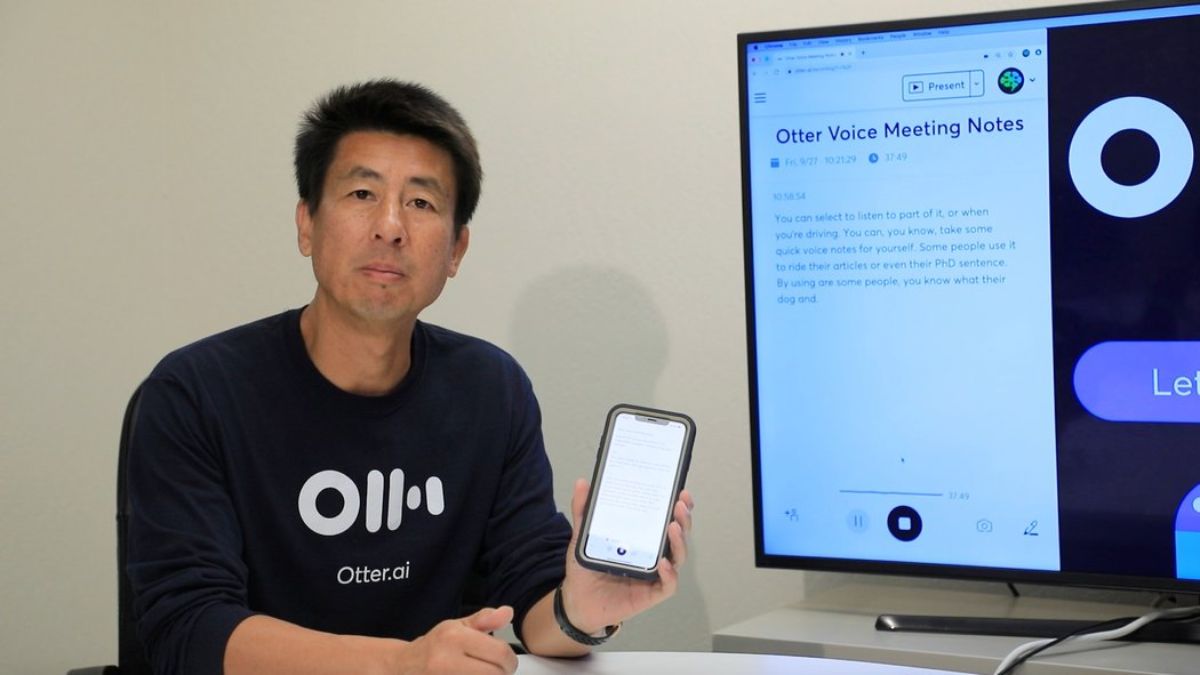Necessary Always Active
Necessary cookies are required to enable the basic features of this site, such as providing secure log-in or adjusting your consent preferences. These cookies do not store any personally identifiable data.
|
||||||
|
||||||
|
||||||
|

In Focus
Otter.ai is redefining its position in the corporate technology landscape, moving beyond its core identity as a meeting transcription platform to become a comprehensive AI-driven meeting knowledge system, according to a report by TechCrunch.
Chief Executive Officer Sam Liang has outlined an ambitious roadmap for the California-based company, aiming to transform meeting notes into actionable business intelligence for enterprise users, highlighting the introduction of an Otter.ai new feature.
Under Liang’s leadership, Otter.ai is transitioning from being a meeting scribe to what he describes as a “corporate meeting knowledge base.” The company has unveiled several initiatives, including the latest Otter.ai new feature, to strengthen its enterprise appeal and enable data connectivity across business platforms.
Among these developments are:
Liang emphasized that these tools are built to help organizations retain, organize, and utilize institutional knowledge that typically resides in disconnected meeting archives. The goal is to ensure that the vast amount of information exchanged during virtual and in-person meetings becomes searchable and actionable across teams, making the Otter.ai enterprise plan more compelling for large organizations.
Related Post – How Otter AI is Reshaping the Future of Meetings with AI
Despite the innovation drive, Otter.ai is also confronting legal scrutiny over its data-handling practices. The company is currently facing a class-action lawsuit in the United States, which alleges that it recorded private conversations without adequate consent and subsequently used those recordings for model training purposes.
While Liang refrained from directly addressing the ongoing litigation, he acknowledged that privacy remains a central concern for AI meeting platforms. “This is not just an Otter issue. Every meeting transcription platform faces similar challenges when it comes to ensuring informed consent,” he stated, as cited by TechCrunch.
To mitigate potential risks, Otter.ai is introducing granular access controls that allow users to decide which parts of a meeting transcript are shared within the organization. This approach safeguards sensitive discussions, including informal or off-record conversations, making the AI transcription service by Otter.ai more secure and enterprise-ready. In other news, Google DeepMind has introduced CodeMender, an AI agent designed to detect and fix software code vulnerabilities automatically.
The AI meeting assistant space has become increasingly competitive, with rivals such as Fireflies.ai, Grain, and Fathom also seeking enterprise traction. However, Otter.ai aims to differentiate itself by embedding deeper into organizational workflows rather than functioning as a standalone transcription utility.
Liang argues that real value lies in integrating meeting data into everyday operations, helping teams connect insights to ongoing projects and client interactions. “To scale meaningful value, meeting data must connect seamlessly with tools that businesses already use,” he remarked in the TechCrunch interview.
By building interoperability across platforms, Otter.ai seeks to strengthen its foothold in the enterprise collaboration and productivity space. The company’s latest Otter.ai new product update is designed to serve as a bridge between recorded content and actionable data, positioning it as a strategic partner in digital knowledge management.
Analysts view Otter.ai’s transformation as part of a broader industry shift toward AI-enabled workflow automation and knowledge intelligence. By converting unstructured meeting dialogue into structured, searchable insights, Otter is aiming to enhance decision-making, productivity, and cross-departmental transparency for businesses.
However, the company’s success will depend on how effectively it manages data governance, consent mechanisms, and enterprise security compliance, key factors influencing adoption in regulated sectors such as finance, healthcare, and government.
As organizations continue to adopt AI-driven meeting solutions, Otter.ai CEO on transcribing meetings plays a crucial role in communicating the platform’s benefits. The firm’s ability to maintain user trust while delivering scalable, integrated functionality will likely determine its standing among next-generation business communication tools.
Otter.ai’s evolution, fueled by the new Otter.ai new feature, reflects a growing demand for AI systems that move beyond task execution to deliver contextual business insights. As enterprises seek to centralize institutional knowledge, the success of this model will hinge on balancing innovation with responsibility, a challenge that could shape the next phase of enterprise AI adoption across global markets.